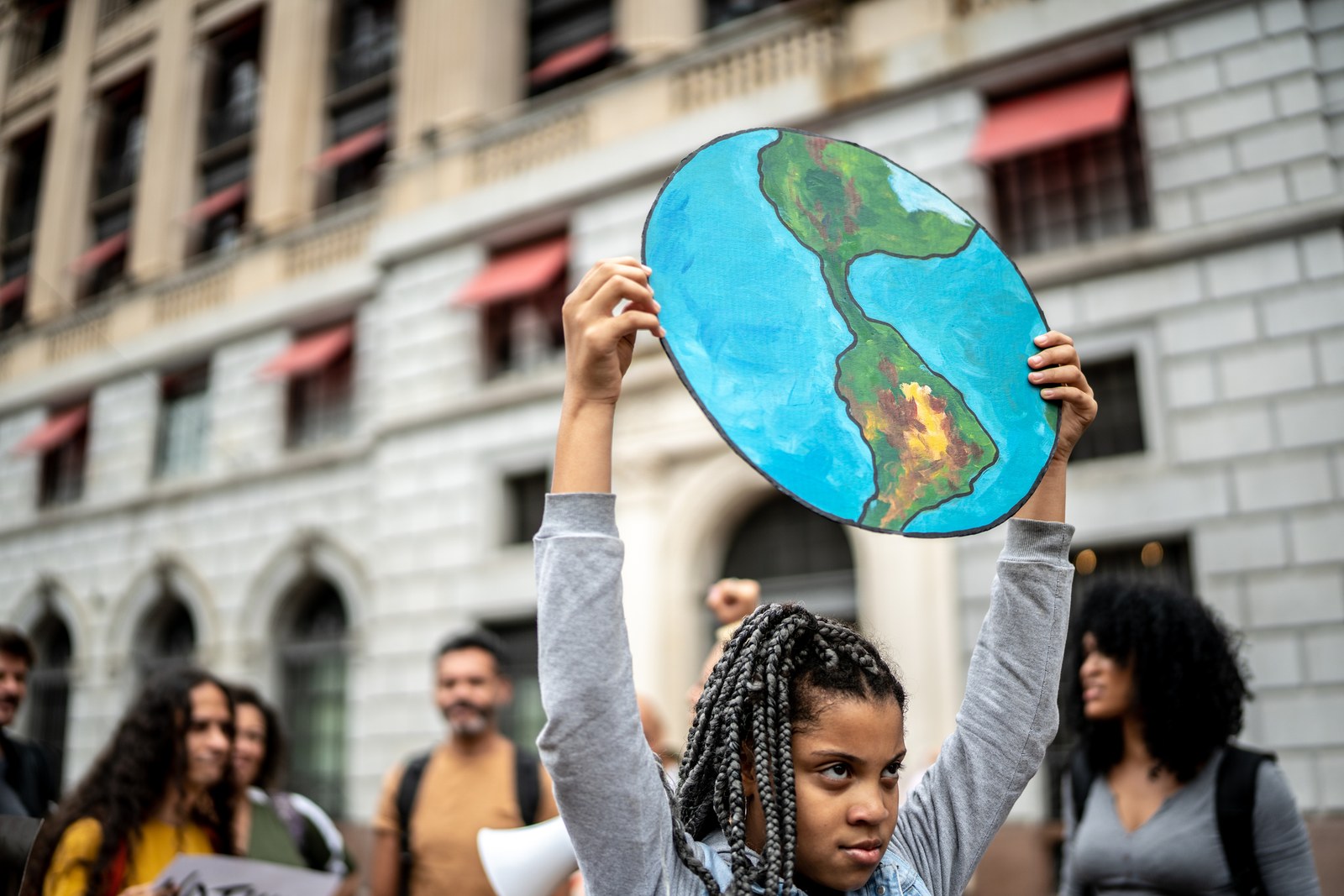UN Report details record global temperatures and surge in climate disaster victims
The stark findings of the Sustainable Development Goals (SDG) progress report underscore the urgent need for global climate action. At COP30, the Climate Action Agenda is poised to advance measures aimed at limiting warming to 1.5°C and bolstering climate adaptation finance

By Mayara Souto / COP30
Last year marked the hottest in the past 175 years, with the global average temperature reaching 1.55°C above pre-industrial levels, according to the World Meteorological Organization (WMO). This was the tenth consecutive year of record heat, a trend that has coincided with a significant increase in the number of people affected by extreme weather events. These alarming statistics are detailed in the 2025 Sustainable Development Goals Report (SDG), released last week by the United Nations (UN).
According to the WMO, the average global temperature is currently estimated to be between 1.34ºC and 1.41ºC above pre-industrial levels. This is a long-term measure, and that's why, even though in 2024 the temperature will have reached what was predicted for 2030 in the Paris Agreement, the agreement is still valid and very relevant.
"The world cannot and must not give up on climate action. In order to keep the 1.5°C warming limit within reach, urgent investments in adaptation, resilience, and emission reductions must be accelerated, especially in vulnerable regions. The cost of inaction far exceeds the cost of action – and time is running out to secure a livable and sustainable future,” the report states.
Impacts
The study reveals that extreme weather events, including heat waves, floods, storms, and droughts, triggered the highest level of climate-related displacement in 16 years. These events have also exacerbated food insecurity and contributed significantly to economic losses and instability. Direct economic losses averaged USD 202 billion per year, and when cascading effects and ecosystem damage are considered, the total surpasses USD 2.3 trillion.
An average of 124 million people were affected by disasters annually between 2014 and 2023, marking a 75% increase over the decade. The report highlights that Least Developed Countries (LDCs) and Small Island Developing States (SIDS) experience more than twice the global average of climate impacts. LDCs, for instance, account for 26% of disaster-related deaths globally, despite representing only 12% of the world’s population. Despite growing vulnerability, disaster-related mortality has decreased, currently standing at 0.79 per 100,000 people, down from 1.61 in the previous decade.
“We are facing a global development emergency – a severe one – with over 800 million people still living in extreme poverty. Intensifying climate impacts and relentless debt burdens are draining the resources countries need to invest in their people,” stated UN Secretary-General Mr. António Guterres during the report’s launch.
Climate Finance
To address vulnerability to extreme events, robust climate finance is essential for supporting adaptation actions—measures aimed at minimizing the impacts of climate change on communities and cities. The report underscores the importance of disaster risk reduction strategies and early warning systems in mitigating losses. As of October 2024, 131 countries reported having national disaster risk strategies, a substantial increase from 57 in 2015, and 113 nations affirmed the presence of multi-hazard early warning systems.
Developing countries, in particular, need to expand this type of technology, and for that, funding is needed. “The upcoming global climate Leaders Summit is a crucial opportunity to correct course by advancing the recently agreed climate finance targets, strengthening multilateral cooperation and implementing ambitious national climate plans across all sectors to achieve net zero emissions by 2050,” says another excerpt from the report.
At COP30, one of the six pillars of the Climate Action Agenda is “Cross-Cutting Enablers and Accelerators,” which specifically includes discussions on finance, particularly for adaptation.
“The COP30 Presidency looks forward to working with the COP29 Presidency to lead the Baku to Belém 1.3T Roadmap, aimed at scaling up climate finance for developing countries. Together, we will produce a report summarizing our efforts ahead of COP30. The Baku to Belém 1.3T Roadmap should serve as a leverage point for financing low-carbon and climate-resilient development pathways in developing countries, keeping in mind that IPCC warnings about the urgency of climate action center on the fact that finance, technology, and international cooperation are key enablers to accelerate climate action,” states the first open letter to the international community, signed by COP30 President André Corrêa do Lago.
Climate finance was also a key topic during negotiations in Bonn, Germany, last month, serving as the focus of two parallel sessions featuring contributions from dozens of countries and non-state actors.
